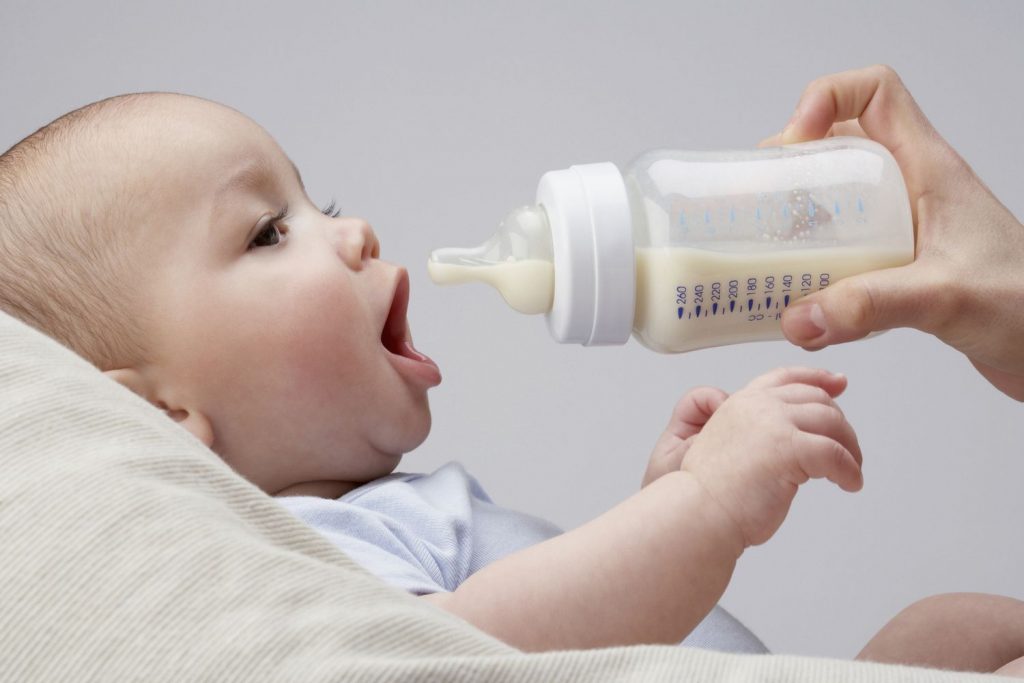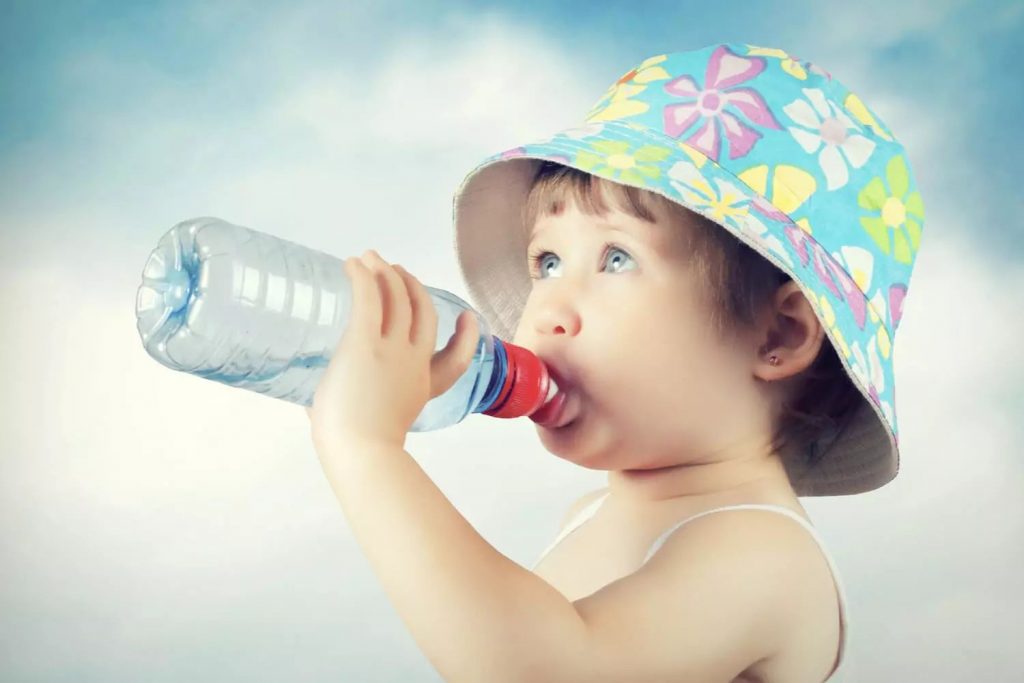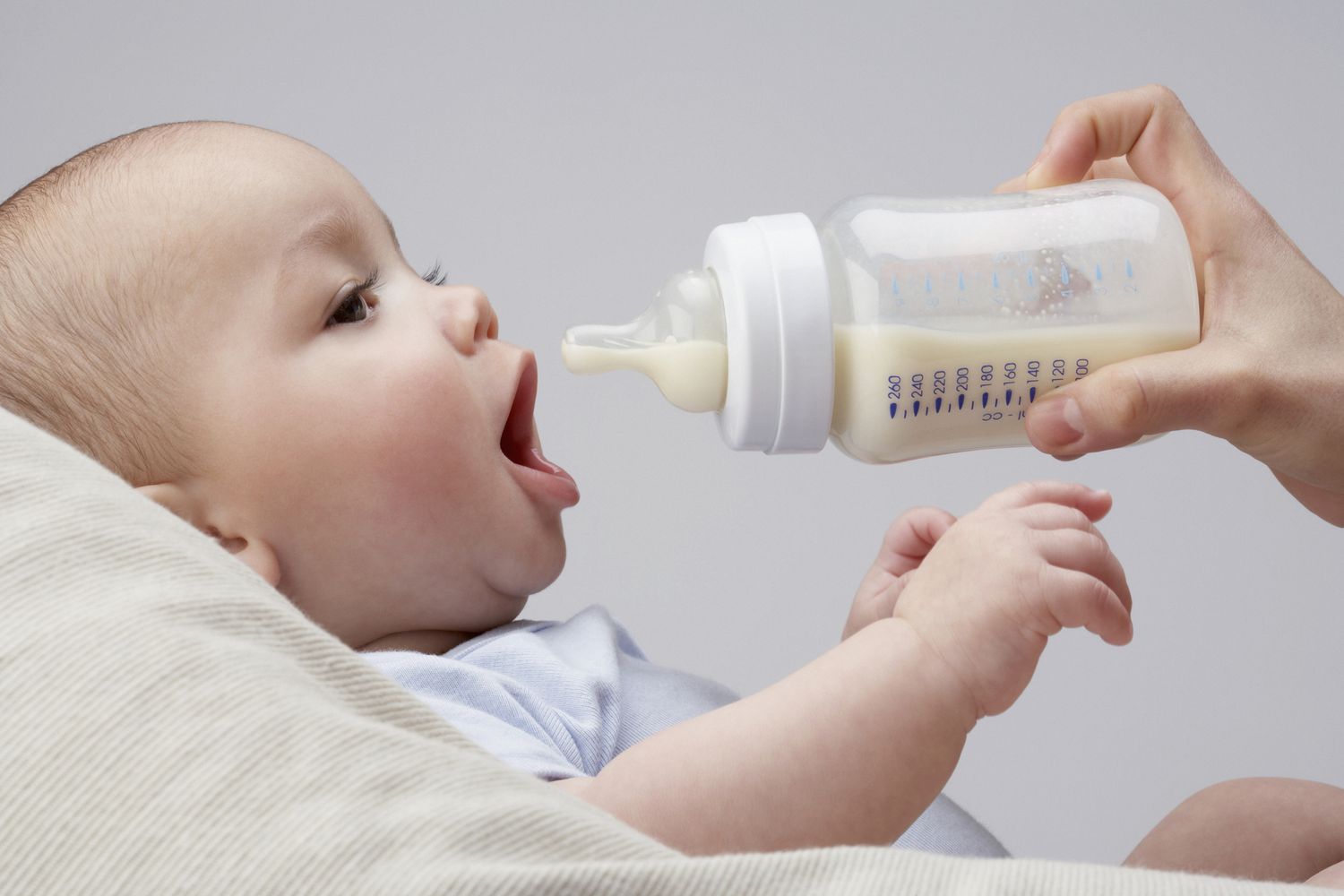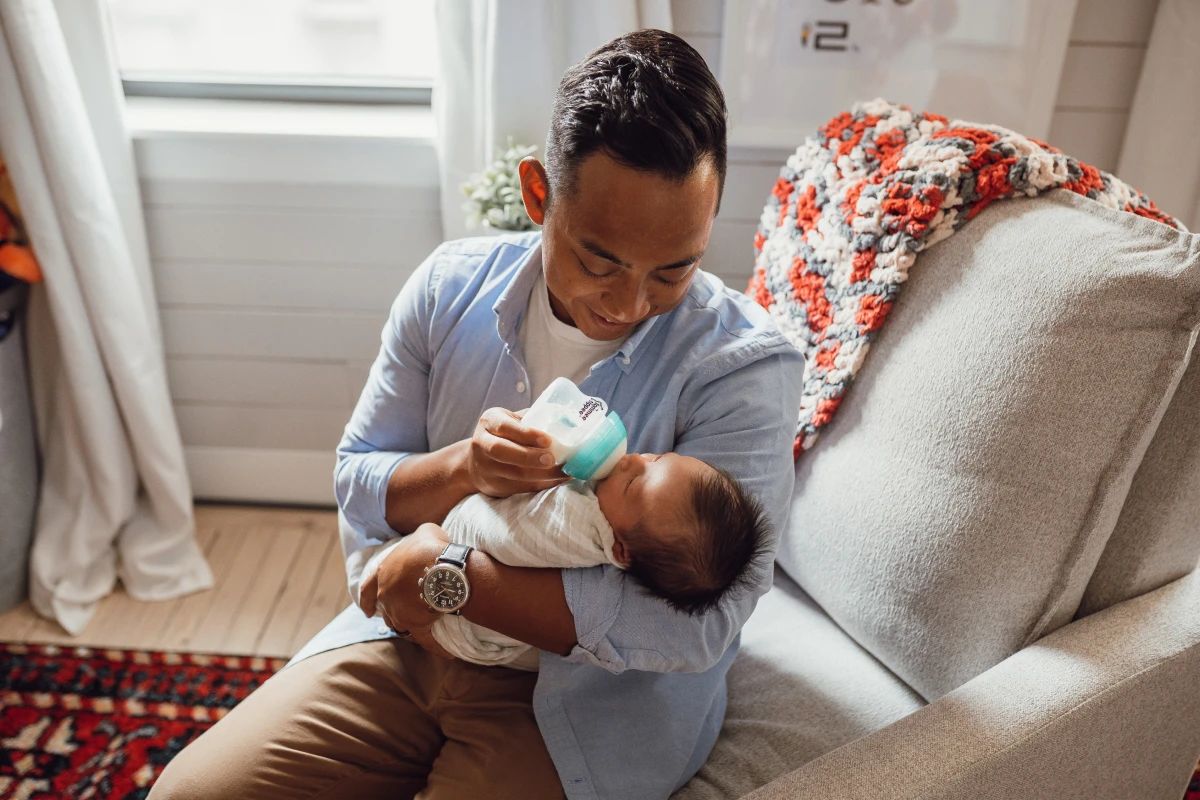It might seem simple in the beginning, but believe me, it is not. Feeding the baby with formula milk might be complicated because the baby would not initially accept any formula. Secondly, you must make it with the right water and at the right temperature.
Is it okay to use tap water? Or is it better to buy bottled water? Do you have to boil bottled water for formula?
You can use any water, but not straight from the bottle or tap! Even if the water is bottled, it may contain some bacteria that might be bad for the baby’s gut. On the other side, the formula may contain bacteria, too.

Do You Have to Boil Bottled Water for Formula?
Yes! You must eliminate all bacteria from the water and the formula beforehand. Even if the formula is securely packed and closed, it may contain bacteria that were present in the manufacturing process. You may also use sterile bottled water made especially for babies, but it is often too pricey compared to regular water, which you can boil and sterilize at home.
It is okay for the baby’s formula to be made with bottled water, but you must boil it at a high enough temperature that can kill the bacteria in the water and formula. The water temperature should be at least 70°C to kill bacteria.
In deciding which bottled water to use for the baby’s formula, we must mention that not all waters are the same. They might look the same at first sight, but their content is pretty different. However, no matter what option you choose – boil it!
Pay attention to hygiene during the process to avoid putting bacteria on the baby’s bottle or inside it.
Which water is best for making the infant’s formula?
As we previously mentioned, all types of water might look the same, but they are way different in their content. Some of them might be dangerous. Others might be safe but lack minerals. However, it is best to boil all of them to ensure no bacteria or infections are present in the water.
A part of the listed water types come in a bottled form, but some come from a different source, so let us review their safety levels. Read consciously because not all of them are good for making baby formula.
Tap water
Tap water might be the cheapest and most available type of water. But, it is not the healthiest version of water for the infant’s formula and certainly, not the purest type of water among the listed options.
This type of water might be dangerous, especially if the pipes are old and rusty. They might also contain lead, which can not be removed from the water by boiling. Lead, as a chemical element, is mainly present in water pipes and might impair the baby’s growth if taken in large quantities.
Conversely, boiling tap water will result in sterilizing it by removing the bacteria and infections but not the lead.
In extreme cases, lead might cause lead poisoning, which often results in vomiting, fatigue, constipation, irritability, and weight loss.
Nursery water
This type of water is regular water purified with fluoride in safe amounts. A safe amount of fluoride might be beneficial for the baby’s teeth strength and nourishment.
Excess fluoride levels might not be as safe as the tiny amounts and might have the opposite effect on the baby’s teeth. Large fluoride content might lead to dental flourishes, also known as teeth discoloration.
Nursery water should be an excellent choice for baby formula preparation, but it might be a little pricey for some parents.
Read more: How to Disinfect Toys Without Bleach

Distilled baby water
Distilled water is the steam of boiled water that has been cooled down and transformed into the main liquid state. In other words, this kind of water is the same as nursery water but without fluoride.
You can use this type of water to prepare the infant formula without boiling it. Distilled water might be an excellent option since it is already purified and free of any dangerous contaminants present in other water types.
But, this should not be the only water your baby consumes because it is entirely purified, even from the beneficial minerals and nutrients.
Bottled water
Bottled water is a better option than tap water, for sure. But there are still a couple of things you should consider when choosing bottled water for making infant formula.
Initially, you must boil the bottled water. And secondly, you must check the sulfate, sodium, and fluoride levels. Lastly, it is important to choose good bottled water with low fluoride content, demineralized, and purified.
Not every bottled water is entirely safe and pure, which is often a discussed topic by the EWG. If you need a precise list of safe waters available on the market’s shelves, here is a complete list of the results of bottled water testing.
Well water
The well water is drinkable underground water, but in most cases, it is untreated and untested. This type of water is the most dangerous for baby formula because it might contain high amounts of bacteria, high nitrate content, and other toxic contaminants that might cause poisoning.
The nitrate levels in well water are crossing the federal drinkable water standards and might be hazardous, especially for infants. In some cases, it may lead to a condition known as methemoglobinemia, a blood disorder that interferes with the oxygen flow in the blood.
The American Academy of Pediatrics (AAP) banned well water and declared it an unsafe option for making infant formula.
Spring water
This water might be a safe option, but not always. Generally, the spring water is purified and compliant with the FDA standards. But, you should still boil it for the infant formula because it may contain some natural-occurring bacteria besides the beneficial minerals.
Also read: How to Make Baby Oatmeal
Conclusion
So, do you have to boil bottled water for formula? – Absolutely!
You can not know the bacteria content inside the bottle, so it is best to boil it to keep your baby healthy. I also recommend considering the other water types mentioned in the list just to know their safety or danger levels.








